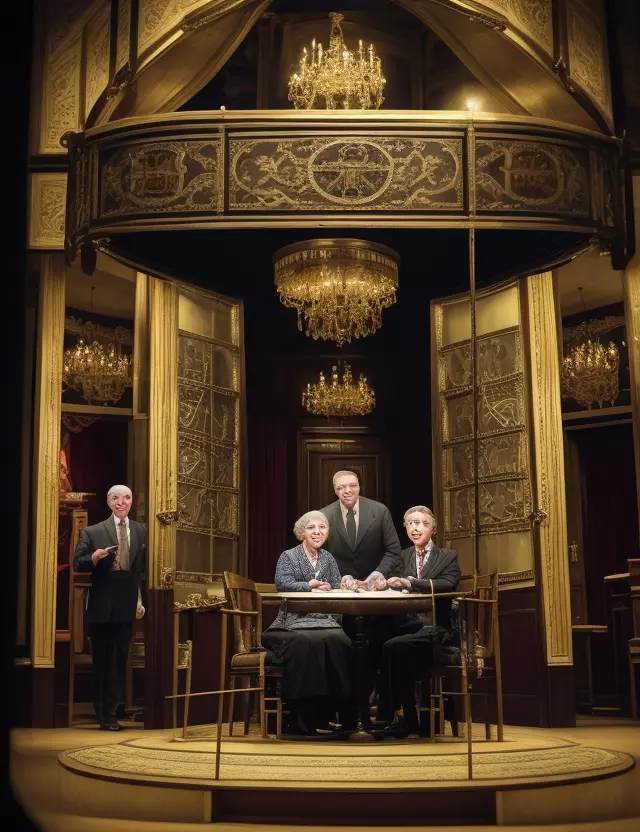Red Scare in Hollywood: The Hollywood Ten and Contempt of Congress (1947)
Anti-Communist Atmosphere Grips the Film Industry

Introduction
On November 25, 1947, the film industry became entangled in the grip of anti-communist fervor during the Red Scare. The 'Hollywood Ten,' a group of professionals in the entertainment business, faced a pivotal moment as they were cited for contempt of Congress, reflecting the pervasive anxiety surrounding alleged communist ties.
The Red Scare and Anti-Communism
The Red Scare of the post-World War II era was characterized by heightened anti-communist sentiment in the United States. Fueled by Cold War tensions, suspicions of communist influence permeated various sectors, including Hollywood.
The Hollywood Ten
The Hollywood Ten consisted of writers, directors, and producers who were accused of having communist affiliations or sympathies. When summoned to testify before the House Un-American Activities Committee (HUAC) regarding their alleged ties to the Communist Party, they refused to cooperate, invoking the First Amendment.
Contempt of Congress
On November 25, 1947, the Hollywood Ten were cited for contempt of Congress for their refusal to answer questions about their political beliefs and associations. This act of defiance against the HUAC marked a turning point in the intersection of politics and entertainment.
Consequences and Blacklisting
The consequences for the Hollywood Ten were severe. Following their refusal to cooperate, they faced legal repercussions, including fines and imprisonment. Moreover, the film industry instituted a blacklist, preventing these individuals from working in Hollywood, leading to the suppression of their careers.
Broader Impact on Entertainment
The citation of the Hollywood Ten for contempt of Congress had a chilling effect on the entertainment industry. Fear of being associated with alleged communist sympathies led to self-censorship and conformity, stifling creativity and diversity of thought in the realm of film and television.
Legacy and Reflection
The episode involving the Hollywood Ten remains a stark reminder of the impact of political ideologies on creative expression. It prompts reflection on the fragility of civil liberties during times of heightened political tension and the enduring repercussions for those caught in the crossfire of ideological conflict.



